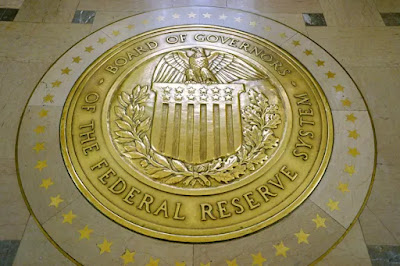WASHINGTON –– A majority of US Federal Reserve policymakers found that a slower pace of interest rate hikes would "likely soon be appropriate," the central bank said Wednesday.
The Fed has embarked on an aggressive path to cool demand and bring down prices as inflation in the world's biggest economy surged to the highest level in decades, raising the benchmark borrowing rate 6 times this year.
With inflation hovering around 7.7 percent, the latest policy meeting in early November produced a fourth consecutive three-quarter point interest rate hike, a major rise.
This brings the rate to a range between 3.75 and 4 percent, the highest since January 2008.
But "a substantial majority of participants judged that a slowing in the pace of increase would likely soon be appropriate," according to minutes of the November meeting released Wednesday.
"A slower pace in these circumstances would better allow the committee to assess progress toward its goals of maximum employment and price stability," the minutes said.
Participants of the meeting noted that it would take time for the full effects of policy to be realized, and a few found that easing the pace of interest rate hikes could lower risks of instability in the financial system.
In a sign of diverging opinions, some cautioned the impact of rate hikes could "exceed what was required" to bring down inflation.
FEW SIGNS OF ABATING
But policymakers agreed at the meeting earlier this month that inflation was "unacceptably high" and well above the longer-run goal of 2 percent.
Annual consumer inflation came in at 7.7 percent in October, down from a blistering high 9.1 percent in June but still underscoring a heightened cost of living.
With surging consumer prices showing "little sign thus far of abating," some officials found that policy might have to be tightened more than anticipated.
They maintained that a period of slower growth would help reduce inflationary pressures.
Despite signs of slowing activity as the Fed's rate hikes trickled through the economy, officials saw that the labor market remained tight, with elevated wage growth.
New home sales posted a surprise increase last month as well, while demand for big-ticket American-made goods picked up more than expected, data released on Wednesday showed.
"Policy makers appear set to slow the pace of rate hikes," said economist Ryan Sweet of Oxford Economics.
But he noted that the Fed's path toward a soft landing is increasingly narrow, adding that the Fed's staff economists see "the odds of a US recession in the next year as basically a coin flip."
A growing number of voices, including some Fed officials, have advocated for smaller steps in the coming months.
Last week, Federal Reserve Governor Christopher Waller said signs of easing inflation pressures and a slowing US economy could allow the central bank to dial back its pace of rate hikes.
Fed Vice Chair Lael Brainard also said last week that it would likely be "appropriate soon" for the Fed to slow the pace of rate increases, adding that it would take time for tightening so far to flow through to the economy.
Agence France-Presse








